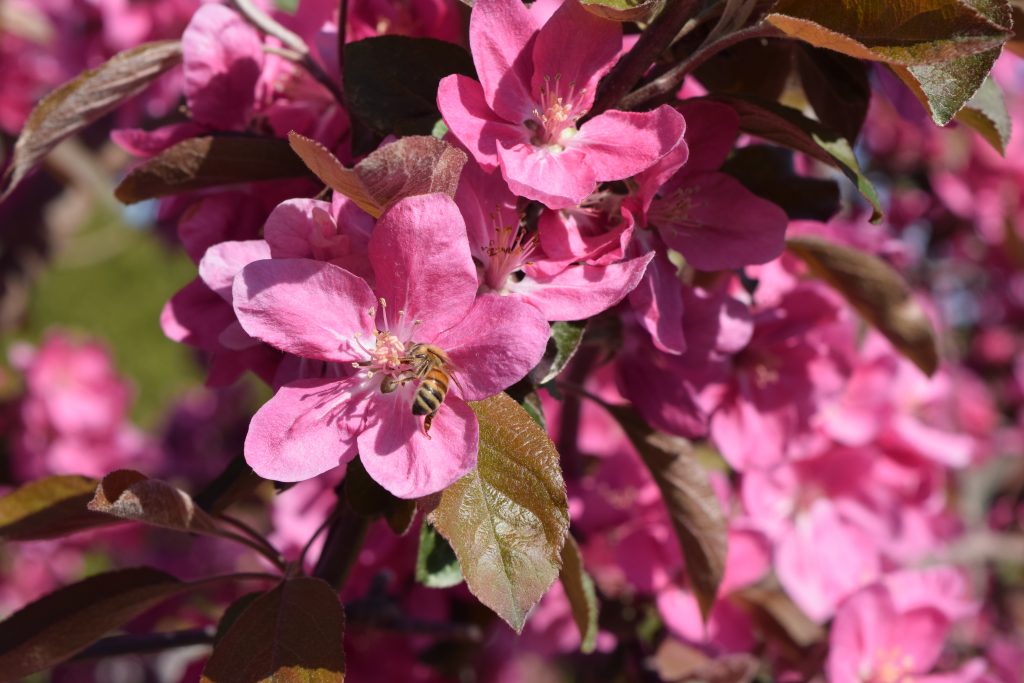
Features
Planting
From the Editor: A season full of possibilities
March 21, 2021 By Alex Barnard
 Close-up of Providence apple flowers at bloom. Photo courtesy of J.A. Cline.
Close-up of Providence apple flowers at bloom. Photo courtesy of J.A. Cline. It’s March, which means spring is right around the corner. It’s the time of year when anything is still possible for the upcoming season. The weather, late or early frosts, labour availability, planting conditions: it’s all up in the air.
That can be terrifying, but it’s also exciting. The 2021 growing season could be fantastic. Maybe that new vegetable variety you decided to try will become a new staple on your farm. Maybe that cover crop you planted after harvest last year will suppress the weeds and give your seeds a head start. The season is full of possibilities.
Of course, experience, planning and the realities of this season will influence what possibilities you pursue. The pandemic is still a going concern in many parts of Canada, and no doubt you’ve already made many decisions on how to approach the coming months’ work.
On page 10, Tom Walker writes about the process of grafting as a way to change wine grape varieties without the cost and disruption of a full replant. It’s a complex decision for a vineyard to make, and not without its risks – especially with concerns of red blotch and leafroll viruses infecting grafting stock.
For a recent apple development, check out page 14. John Cline, professor of pomology and tree fruit physiology with the University of Guelph, shares information about Providence, a new apple cultivar he developed at the university’s Simcoe Research Station. The apple’s deep crimson skin and flesh hold attractive promise for the cider and processing industries.
Considering transitioning to organic practices, but put off by the anticipated costs? On page 18, Stuart Oke and David Cohlmeyer of the Organic Council of Ontario discuss their recently created Cost of Production series. These organic product profiles are the result of OCO consultations with organic producers in an attempt to better understand the different variables that affect organic production.
If you’re looking to spice up your operation, there are always new crops, equipment or strategies you can try. But experience and tradition have many benefits, too – each season often brings enough changes and challenges that you might not want to go looking for more.
One way to approach trying new things might be to follow the lead of grape grafting or apple cultivar development: building on something established to create something different. Find one thing you’d like to improve and use the knowledge and experience you’ve gained through years of growing to do it better.
After all, uncertainty is a feature, not a bug, of farming. If you were concerned about the safe and reliable route, you wouldn’t be out in the fields year after year, planting, growing and harvesting against weather, pests and all odds.
Be bold (but not brash): use what you know and make something different.
Print this page